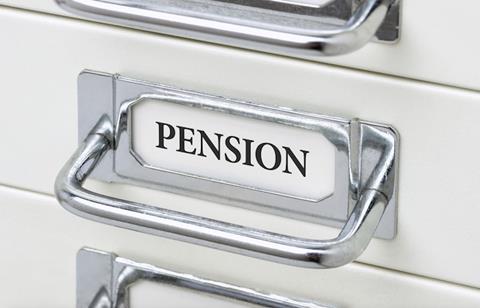
The Advocate General at The Court of Justice of the European Union (CJEU) has ruled that employees are entitled to at least 50% of the total value of their accrued pension pot in the event that their employer becomes insolvent.
The case concerned is Grenville Hampshire v The Board of the Pension Protection Fund. Hampshire worked for manufacturing organisation Turner and Newall between 1971 and 1998, and was a member of their supplementary occupational pension scheme. In 1998, at the age of 51, Hampshire retired with a pre-tax annual retirement income of £48,781.80, with an annual increase of at least 3%.
Turner and Newall became insolvent in 2001. In 2006, the Pension Protection Fund (PPF) opened its assessment concerning the takeover of the organisation’s pension scheme. This assessment found that Hampshire was entitled to £19,819 of PPF compensation a year before tax, as he had not reached the normal age for Turner and Newall’s pension scheme in 2006, and was therefore subject to the statutory compensation cap. This amount was also not predicted to be adjusted for inflation, because Hampshire’s employment was primarily before April 1997. If the organisation had not become insolvent, he would have received £60,240 a year in 2006.Therefore, Hampshire’s pension entitlement was reduced by 67%.
Hampshire and 15 other former employees sought application of the review mechanisms for the PPF valuation under the Pensions Act 2004. They subsequently appealed against the decision ruling in favour of the valuation, citing the EU’s Article 8 of Directive 2008. This directive requires all EU member states to take necessary measures to protect the interests of employees in respect of their rights to retirement benefits in the event of the insolvency of the employer.
The Court of Appeal referred questions to the CJEU in July 2016. These include whether the aforementioned directive requires member states to ensure that every individual employee receives at least 50% of the value of their accrued pension savings in the event that the employer becomes insolvent, and whether it is sufficient for a member state to have a system of protection where employees usually receive more than 50% of the value of their accrued pension, but where some employees may receive less than 50% if they are subject to a financial cap, or to rules limiting the annual increases in compensation paid or the annual revaluation of their entitlements prior to pension age.
The Advocate General handed down the opinion that the directive was to be interpreted that every individual employee is entitled to compensation of at least 50% of the total value of their accrued retirement savings. The Advocate General further ruled that it was therefore insufficient to have a system of protection that facilitated employees to receive less than this required 50%.
Advocate General Kokott, who handed down the decision, said: “Article 8 of Directive 2008/94 contains an obligation to member states which is unconditional and sufficiently precise, with the result that it may be relied on directly by an individual against a body such as the Pension Protection Fund.”
David Luxton, national officer at trade union Prospect, added: “At first glance, this opinion seems like it could be very favourable for many Prospect members who have lost pension entitlement due to the insolvency of their employer and whose compensation from the Pension Protection Fund is very low. The cap has left many people facing hardship.
“Hopefully the court will endorse the minimum level of protection advised by the Advocate General so that pensioners who have already lost out significantly maintain a minimum level of compensation.”











